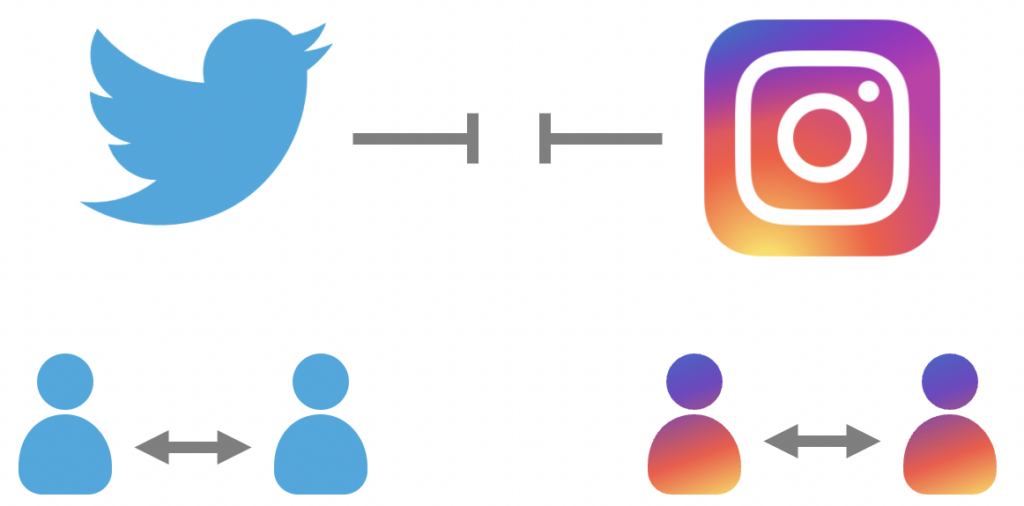The Great Mastodon Migration
Originally published for The Scope on November 22, 2022
With the impending downfall of Twitter (if you need it explained, I am jealous), people who have spent the last 16 years using the website as a source for entertainment and community have been scrambling to find a replacement. The one that has caught the eye of science and academic Twitter users is Mastodon—but is it actually a suitable replacement for everything science Twitter had been used for?
At a glance, Mastodon might look like any other social media site, but if you go to sign up for an account without reading the manual, you might find yourself puzzled. Mastodon is an open source, decentralized, federated network of servers that allows users to talk across servers using the same communication protocols. If you understood that soup of tech jargon all in one go, congrats—you’re better than me. If not, let’s break it down visually.
Twitter is a centralized platform owned by (currently) one guy (who shall not be named). When you sign up for an account, you go to Twitter dot com and make an account there, and—boom—you can tweet all your pent-up rage at anyone, but only if that person (or bot) has also made an account on Twitter.

A federated network, or the “fediverse” (nothing annoys me more than cute tech-y names that obscure the meaning of the word for everyone else), is decentralized. Nothing is owned by one entity; nothing is stored on one server. That might sound confusing, but we’ve all used federated communication before—email! Because the communication protocols across all email platforms are the same, your @gmail.com can talk to someone’s @hotmail.com. You can even host your own website and email someone from @tw177ersux.com.

Mastodon is the protocol that makes communication between servers (called “instances” on Mastodon) possible, so you don’t necessarily join Mastodon—you join a server that uses Mastodon (this is more confusing…sorry). To be perfectly honest, this is far outside my expertise and others have done better jobs of explaining how these platforms work than I ever could. But these are the basics required to understand what Mastodon has to offer those fleeing science Twitter.

There is (was?) a little pocket of Twitter where you can find other academics and scientists of all disciplines. You could share and discuss findings, processes and half-baked ideas. There is some ability to do outreach or science communication on the platform—every day there is a new person trying to communicate the complexities of immunology to a lay audience in 280 character blurbs—but the utility of Twitter in academia has always been its ability to reach peers.
Academics share papers with each other and discuss the findings in the replies—expert to expert. People bring their phones into conferences and live tweet presentations—those tweets will reach an academic audience that is far more diverse than the crowd in attendance at the conference. In a lot of ways, Twitter has opened up academic spaces to those who historically have been excluded—people whose disabilities would not be accommodated by conference venues, or who lack the finances or language fluency to join in on academic socializing. Twitter provides a forum for people to air grievances and commiserate away from their institutions. The scientific community has a lot to lose if (when?) Twitter dies.
Mastodon is far from perfect as a platform, and it isn’t just the technological fluency required to get started. The decentralized nature of the fediverse means there is no single entity you can get help from when you run into issues. Data privacy terms and content moderation are dependent on what instance (server—*shakes fist at all the people making up new terms for me to remember*) you join. And, while theoretically anyone can start their own instance, it takes resources and knowledge to host a server, which leaves running instances to those who already have the resources and knowledge. So, despite having a chance to start from scratch, online scientific spaces are still being run largely by cis white men.
There is a lot of speculation for whether Mastodon can recapitulate everything that Twitter was (likely no). But I want to know if that corner of the internet that briefly opened up academia to a wider audience can be restored. There are several instances that are geared toward scientists. So far, it has been wave after wave of intros and questions about how the site works. In the chaos of #RIPTwitter, the scientists appear to be chugging along as usual—posting papers, sharing animal photos, and writing overcomplicated threads about the state of academia. Join us, it may be worth it!
Further reading:
- Mastodon start guide.
- Find a Mastodon instance
- Find out if people you follow on Twitter have Mastodon
- Disabled people fear Twitter changes under Elon Musk leave them behind
- Black Twitter’s Mass Exodus: The Community Will Find Another Way
- The fediverse is growing, but power imbalances might stay
- A pre-TwitterMigration Mastodon user expresses his frustration with the changing atmosphere
- A look at the Mastodon migration numbers
- Follow me!